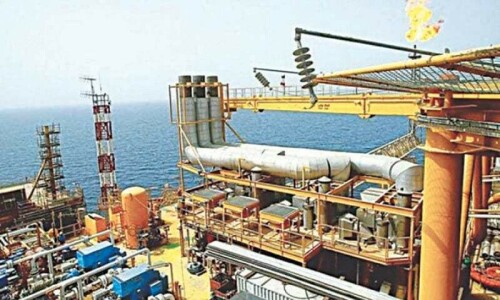PEOPLE in the rich world should become “demitarians” — eating half as much meat as usual, while stopping short of giving it up — in order to avoid severe environmental damage, scientists have urged, in the clearest picture yet of how farming practices are destroying the natural world.
They said the horsemeat scandal had uncovered the dark side of our lust for meat, which has fuelled a trade in undocumented livestock and mislabelled cheap ready meals. “There is a food chain risk,” said Prof Mark Sutton, who coined the term demitarian and is lead author of a UN Environment Programme study published yesterday. “Now is a good time to talk to people about this.”
It came as the minister at the centre of the UK horsemeat scandal, Owen Paterson, asked the Food Standards Agency (FSA) to investigate claims that the government was warned in 2011 that horsemeat could enter the food chain.
The environment secretary ordered the investigation after it was reported the government was warned in 2011 that horsemeat with possible drug residue was getting into food.
John Young, formerly at the Meat Hygiene Service, now at the FSA, told the Sunday Times he helped draft a letter to the Department for Environment, Food and Rural Affairs that was ignored.
The letter to former minister Sir Jim Paice on behalf of Britain’s largest horsemeat exporter, High Peak Meat Exports, warned the government that its passport scheme, designed to stop meat containing phenylbutazone, known as bute, getting into the food chain was a “debacle”.
Paterson also called for a Europe-wide overhaul of food testing, saying the current system relied on trusting paperwork that comes with meat shipments.
The quest for ever cheaper meat in the past few decades — most people even in rich countries ate significantly less meat one and two generations ago — has resulted in a massive expansion of intensively farmed livestock. This has diverted vast quantities of grain from human to animal consumption, requiring intensive use of fertilisers, pesticides and herbicides and, according to the UNEP report, “caused a web of water and air pollution that is damaging human health”.
The run-off from these chemicals is creating dead zones in the seas, causing toxic algal blooms and killing fish, while some are threatening bees, amphibians and sensitive ecosystems.
The UN scientists said so as not to cause environmental harm, the move to meat in the developing world must be balanced with a reduction in the amount consumed in developed countries.— The Guardian, London









































